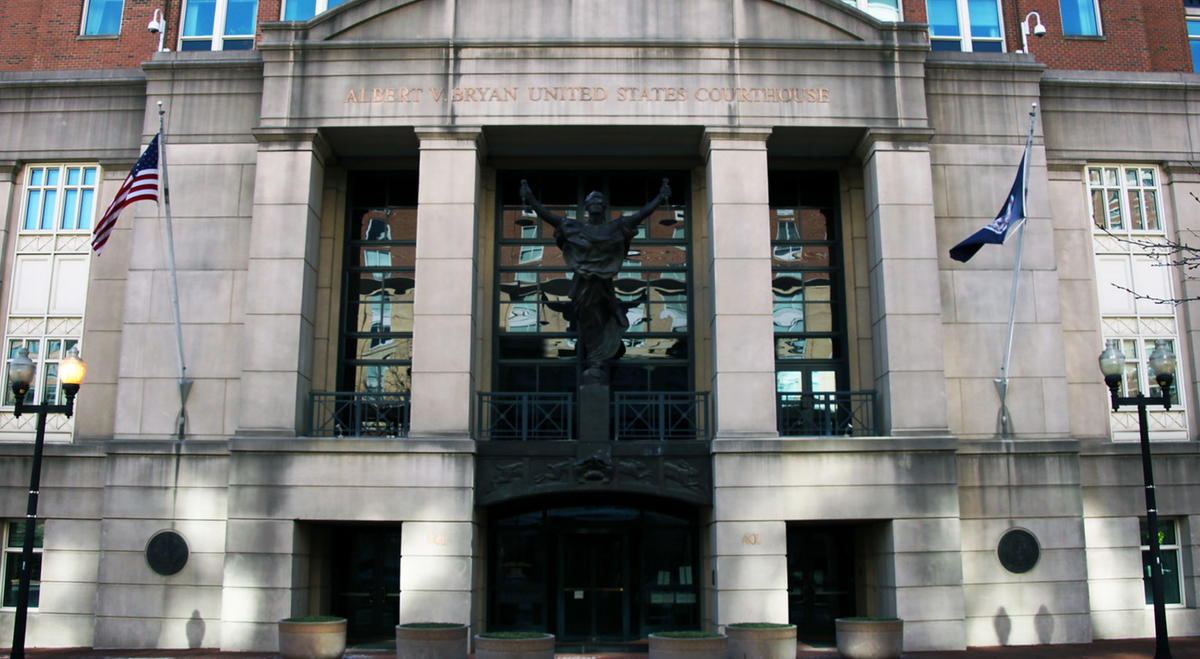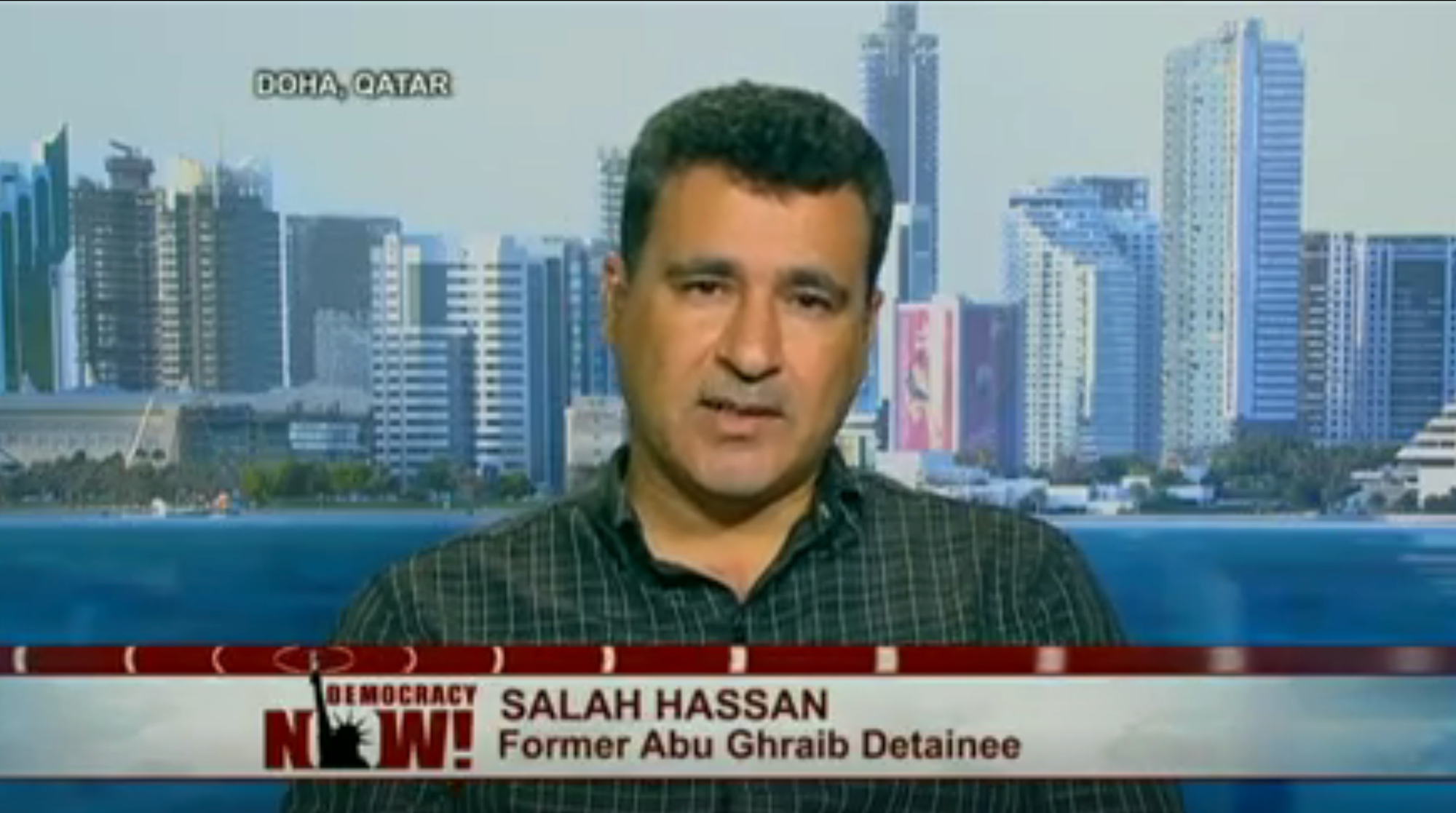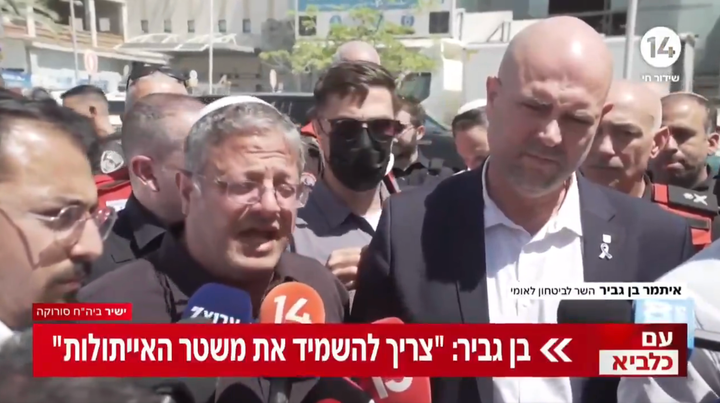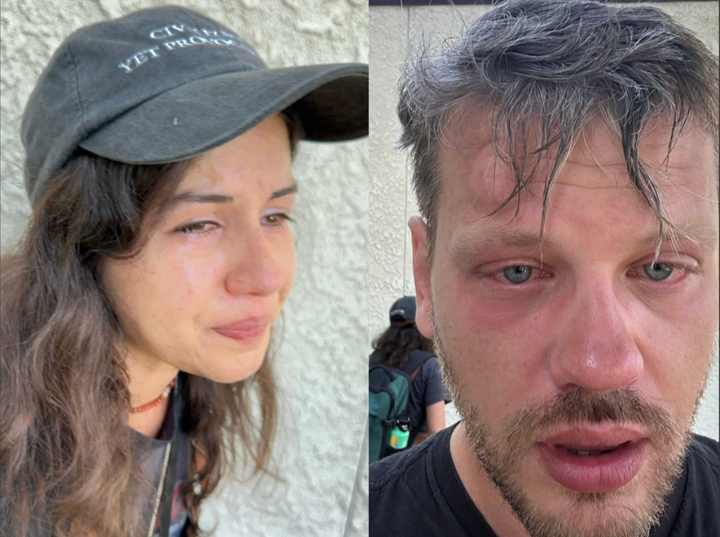US Military Contractor CACI Finally Goes On Trial For Abu Ghraib Torture
Three Iraqis who survived torture at Abu Ghraib have their day in U.S. court—two decades later

A civil trial against CACI Premier Technology, a United States military contractor that allegedly engaged in torture at Abu Ghraib prison, begins today in Alexandria, Virginia.
Nearly 16 years ago, the Center for Constitutional Rights (CCR) filed a lawsuit on behalf of four Iraqi torture survivors. CACI repeatedly sought to derail the case through various legal maneuvers. One Iraqi torture survivor was dismissed from the lawsuit, and CACI International successfully had their company removed as a defendant.
Yet given the sheer obstacles to torture accountability in the U.S. court system, the trial represents a long overdue victory for justice. It is the first time that survivors of U.S. torture will testify in a U.S. courtroom, according to CCR.
The trial in the U.S. District Court for the Eastern District of Virginia will be presided over by Judge Leonie Brinkema. The proceedings are expected to last for more than a week, which means a jury will likely issue a verdict around the 20th anniversary of the Abu Ghraib scandal—when photographs of U.S. soldiers torturing detainees were first broadcast by CBS News.
As the lawsuit claims [PDF], CACI Premier Technology employees allegedly inflicted “severe pain” while interrogating Suhail Al Shimari, Asa’ad Zuba’e, and Salah Al-Ejaili. They were tortured in a part of Abu Ghraib that was known as the “hard site,” which was a “relatively small section of the complex controlled by American military forces that housed detainees who were suspected to be of ‘military intelligence value.’”
Ejaili, a reporter for Al Jazeera, was held at Abu Ghraib for about six weeks. When he arrived, he was stripped naked and a bag was pulled over his head. He was later put in an orange jumpsuit and handcuffed to a pole.
With the bag still over his head, Ejaili vomited a “black substance.” A woman touched him and pulled his hair and then ordered him to clean up his vomit with the orange jumpsuit. He says he was subsequently brought to a cell that was cold. A guard handed him ladies underwear, the only piece of clothing he had to wear that night.
Interrogations occurred two or three times a day. “Each time, he was stripped naked, had a bag placed over his head, and was taken to an interrogation room,” according to the lawsuit. “During the interrogations, he was often handcuffed to a pipe in the room and was beaten, punched, kicked, and slapped on the head. The interrogators also sometimes doused him with hot water, hot tea, or cold water.”
Stress positions were employed frequently. He was chained naked to the wall, bed, or bars of his cell. At one point, dogs were allegedly brought near his face to terrorize him.

During an interview for “Democracy Now!” In 2014, Ejaili said, “I am a journalist, and I was at my workplace covering the events in the district of Diyala, north of Baghdad. It is my duty to cover events in the field and on the ground, as well as political events. So my arrest happened while I was doing my journalistic duty.”
“There was an explosion in that area. I went to that place to try to take some photographs and gather information about this incident. After I was done with all this work, I was surprised that a man in a military uniform ordered my arrest,” Ejaili added.
Upon arrival at the hard site, Zuba’e allegedly had a rope tied around his neck and was “pulled out of a Hummer with the rope.” Guards punched and kicked him as he screamed out in pain. He was taken to a room, stripped naked, and a soldier “hugged Al-Zuba'e's naked body.” They said, ”I'm going to ‘fiki-fiki’ you.”
Soap was rubbed into Zuba’e’s eyes, and he was forced to take a shower, which was so cold that he could no longer stand and fell to the ground. Guards later beat him “until his chest bled.” Then a dog was brought into the hallway to attack his hands and legs.
Shimari, a farmer, was allegedly “forced to kneel on sharp stones” and “punched all over his face,” after he was brought to the hard site. The sharp rocks made it so he cannot stand for “extended periods of time” anymore.
One guard stepped on Shimari’s stomach, back, legs, and head. The following day, he was forced by an interrogator to stand on his toes with his nose against the wall. A guard was ordered to throw Shimari against the wall. He was later beaten by the guard on his head and face while his hands were tied behind his back.
For forty days, the mistreatment occurred regularly. Guards threatened Shimari with dogs. Loud music tortured him. He was doused with water. Guards connected him to electric equipment called a “lie detector” and shocked him. They tied a rope around his neck to drag him around. Guards inserted fingers in his rectum, and even beat him in his genitals, which robbed Shimari of the ability to have children.

CACI Internațional acquired the Premier Technology Group in March 2003. The lawsuit says that CACI International “incorporated” CACI Premier Technology to expand the company’s “intelligence services into the field of tactical intelligence, including interrogation support.”
According to the lawsuit, CACI Premier Technology was “the only private contractor whose employees served as interrogators at the Abu Ghraib Hard Site during the time period relevant to this action specifically from fall 2003 to spring 2004.”
Services were provided through a “blanket purchase agreement” established between CACI Premier Technology and the U.S. Interior Department, which managed the contract on behalf of the U.S. Army.
A “statement of work” indicates that CACI Premier Technology was contracted to provide “interrogation support cells, as directed by military authority.” Contractors were to “assist, supervise, coordinate, and monitor all aspects of interrogation activities.” CACI employees were the interrogators, not the military police who “guarded” the detainees.
There was also a command vacuum that allowed CACI Premier Technology employees to assume de facto authority over U.S. military police at the hard site. “As authority figures, they created and set in place the extreme and abusive conditions in which detainees were to he confined at the Hard Site location, where Plaintiffs were detained, it was those torturous conditions ordered by CACI PT employees to which Plaintiffs were subjected at the Hard Site.”
In the last hearing before the trial, Judge Brinkema indicated that there would be 70-75 names on the jury list of which eight would be selected.
“I think we need a lot of extra ones just because there’s been some pretrial publicity about the case, and some of the jurors may have heard of Abu Ghraib, although it’s been so long ago that probably the memories won’t be that specific,” Brinkema said.
The U.S. government is not a party to the case, however, a government attorney will be present during proceedings to invoke the “state secrets privilege.” Over the past two decades, officials from the U.S. Justice Department have blocked a number of survivors of torture and human rights abuses from pursuing lawsuits by claiming state secrets.
Muhammad Faridi, a lawyer for the Iraqi plaintiffs, complained that the U.S. government was asserting the “right to make evidentiary objections at this trial.” He said that “exceeds the authority granted to the government.”
A 2004 report compiled by Army Major General Antonio Taguba documented "numerous incidents of sadistic, blatant, and wanton criminal abuses were inflicted on several detainees” that occurred at Abu Ghraib between October and December 2003. Taguba is expected to testify at the trial.
But according to Faridi, when the government was asked to allow the plaintiffs’ attorneys to meet with Taguba before he took the witness stand, they objected. The government also opposed allowing Taguba to read the entirety of his own report, and Brinkema upheld their opposition because she had previously decided that only certain excerpts were admissible.
The court issued an order prior to the trial that limits what CACI Premier Technology’s attorneys may tell jurors about the men who were tortured. For example, as attorney John O’Connor recalled, they may not say that a plaintiff had “a cache of IEDs and rocket launchers” because having such weapons “doesn’t make you any more or less deserving of torture, CIDT [cruel, inhuman, or degrading treatment], or war crimes.”
CACI Premier Technology pushed back in an effort to prevent attorneys for the Iraqi torture survivors from talking about their jobs. They contended it would be inappropriate to “humanize” the Iraqis with “half a story.”
Brinkema wholly rejected their request. “A very brief amount of humanizing the plaintiffs is fine. You can’t dehumanize—even if they were terrorists, it doesn’t excuse the conduct that’s alleged here. So it doesn’t help you one bit to get into any of that. And in fact, I think it will come back to haunt you.”
“I’m going to allow a little bit of background, okay, just a little bit, and I’m not changing my view that you don’t go into that area.”
“If [the plaintiffs] open the door, we will revisit that with the court,” O’Connor replied.
Brinkema shot back, “Well, no, you won’t because I ruled on it. Please don’t make me have to say in front of the jury, Mr. O’Connor, you’ve already raised this issue, and I’m denying it.”




Comments ()